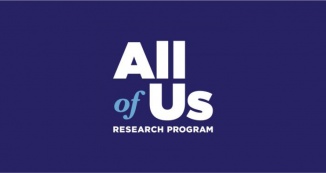
16 Apr ITHS Tool Improves Odds of Successful Observational Research
Researchers seeking access to clinical data for observational study purposes have historically faced challenges when trying to determine cohort sizes for their investigations. Through the Institute of Translational Health Sciences’ De-identified Clinical Data Repository (DCDR), researchers now have access to a secure, web-based tool that allows them to query de-identified data from more than one million patients in various UW Medicine clinical systems. This tool enables efficient, no-cost access to research data that can rapidly determine cohort sizes and study feasibility.
“The ability to immediately know the number of UW patients who historically suffered from a particular condition or illness or who took a particular drug or met any of a number of other criteria is very powerful,” said Dr. Robert Harrington, Professor of Medicine in the University of Washington Division of Allergy and Infectious Diseases. “It enables and encourages the development of research ideas, quality assurance projects, and ultimately could directly inform patient care.”
The DCDR provides a graphical interface that simplifies query design. Current DCDR data elements include demographics, diagnoses, discharge dispositions, labs, medications orders, procedures, visit details, vital signs, and other elements. ITHS can also offer biostatistical and biomedical informatics consultations to advance the idea if researchers determine their identified cohort is large enough to merit study after using the DCDR.
Dr. Harrington was an early adopter of the DCDR and worked closely with ITHS to create an infectious disease sub-repository to support his research. This sub-repository is a modified DCDR list of searchable terms and a library of query-generated data sets. The tool facilitates the investigation of a wide variety of infectious diseases suffered by patients cared for at UW Medicine-affiliated hospitals.
As a part of the infectious disease sub-repository, small grants are offered to support the ITHS consultation fees associated with observational research projects. These grants are targeted to infectious diseases fellows, medical residents, and junior faculty. The first of a planned semi-annual funding announcement was offered in March 2014.
“The funds for this grant program are provided by the Infectious Diseases Division, have already led to multiple applications, and promise to advance the clinical research and training goals of the Division,” said Dr. Harrington.
ITHS does require users to have a unique UWNetID and to complete training before being allowed to request access to the DCDR. More information can be found by visiting the DCDR web page.
“We hope that other departments and divisions will adopt and use the DCDR and provide feedback to ITHS on how to improve its search capability,” Dr. Harrington concluded. “As the DCDR is refined in response to researcher input, the more useful it will become to all investigators.”
Please contact ITHS at iths-bmi-consult@uw.edu to learn more about how the DCDR can be used to support your research or the research needs of your department.
Important Note: As of September 1, 2018, the ITHS Biomedical Informatics team will no longer provide services through the De-identified Clinical Data Repository (DCDR) tool. The ITHS DCDR will be replaced by a new tool called, “Leaf,” which has been developed in partnership with UW Medicine.
Learn more about Leaf ›







